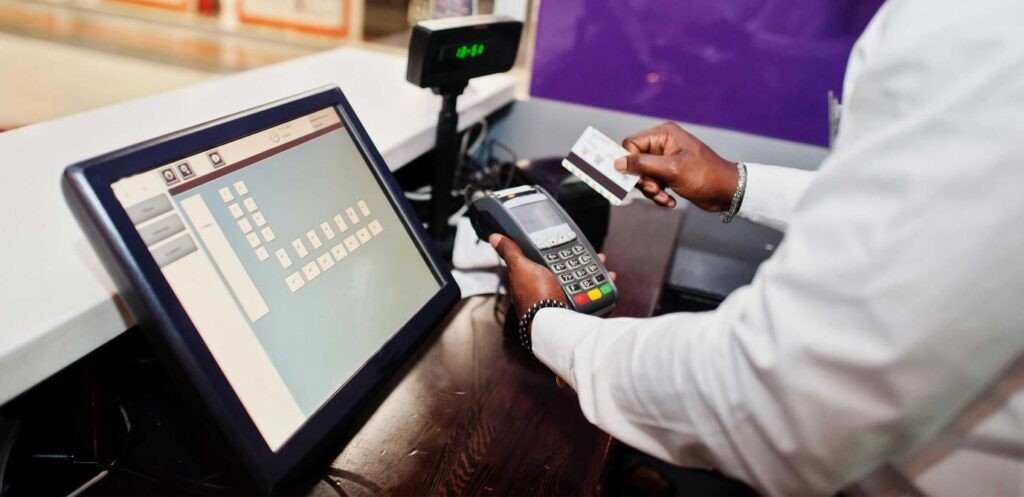The retail landscape is evolving at a rapid pace. Consumers now expect a seamless shopping experience across multiple channels, whether they are browsing online, visiting a physical store, or making a purchase through a mobile app. This shift in consumer behaviour has led to the rise of omnichannel retailing, a strategy that integrates all sales channels to provide a cohesive and unified shopping experience.
At the heart of this strategy lies the online Point-of-Sale (POS) system, a powerful tool that enables retailers to streamline operations, enhance customer experience, and drive sales.
Introduction: Omnichannel Retailing
Omnichannel retailing is a comprehensive approach that aims to create a unified shopping experience across all channels, including brick-and-mortar stores, e-commerce platforms, mobile apps, and social media.
It recognises that modern consumers expect a seamless and consistent experience regardless of how and where they choose to engage with a brand. By breaking down the barriers between different sales channels, retailers can enhance customer satisfaction, increase sales, and build long-term loyalty.
The Role of Online POS Systems
An online POS system plays a pivotal role in enabling omnichannel retailing. Traditionally, POS systems were confined to physical stores, where they were used to process transactions and manage inventory. However, with the rise of e-commerce and mobile commerce, the need for a more versatile and interconnected POS solution became apparent.
Online POS systems allow retailers to centralise sales data, inventory management, and customer information across all channels, providing a holistic view of their business operations.
Benefits of Unifying Sales Channels with Online POS Systems
- Seamless Shopping Experience: Integrating online and offline sales channels through a unified POS system allows retailers to offer customers the convenience of browsing, purchasing, and returning products across various touchpoints. This seamless experience enhances customer satisfaction and encourages repeat business.
- Real-Time Inventory Management: Online POS systems enable retailers to track inventory levels in real-time, regardless of the sales channel. This visibility allows for accurate stock management, reducing the likelihood of stockouts and overstock situations. Customers can also check product availability online and in-store, promoting a more informed purchasing decision.
- Personalised Customer Engagement: With a unified POS system, retailers can access a comprehensive view of customer data and purchase history. This information can be leveraged to deliver personalised marketing messages, recommend relevant products, and tailor promotions based on individual shopping behaviour.
- Enhanced Operational Efficiency: Centralising sales data and business operations through an online POS system streamlines processes and reduces the complexity of managing multiple channels. This efficiency leads to cost savings, improved accuracy, and better decision-making for retailers.
- Data-Driven Insights: Online POS systems generate valuable data on sales performance, customer behaviour, and product trends across all sales channels. By leveraging this data, retailers can gain actionable insights to optimise their marketing strategies, product assortment, and overall business operations.
Implementing Online POS Systems for Omnichannel Retailing
When implementing an online POS system for omnichannel retailing, retailers should consider the following best practices:
- Integration Capabilities: Choose an online POS system that seamlessly integrates with e-commerce platforms, mobile applications, and other sales channels. This integration ensures that data is synchronised across all touchpoints, providing a unified view of the business.
- Mobility and Flexibility: Look for online POS solutions that offer mobility and flexibility, allowing sales associates to process transactions, access inventory information, and engage with customers from anywhere within the store. This mobility enhances the customer experience and empowers staff to deliver exceptional service.
- Scalability and Customisation: Select an online POS system that can scale with the business and be customised to meet specific requirements. Whether it’s adding new sales channels, expanding to new locations, or adapting to evolving customer needs, a flexible POS solution is essential for long-term success.
- Security and Compliance: Prioritise online POS systems that adhere to industry standards for data security and compliance. Protecting customer information and payment data is paramount in today’s retail environment, and retailers must ensure that their POS system meets the necessary security protocols.
Conclusion
The integration of online POS systems and the adoption of omnichannel retailing represent a significant shift in the way retailers engage with their customers. As the retail landscape continues to evolve, embracing this approach will be crucial for retailers to stay competitive and build enduring relationships with their customer base.
With the right strategies in place, the integration of online POS systems can empower retailers to navigate the complexities of a multi-channel retail environment while delivering exceptional service and driving sustained business growth.














Comments